

HOME CURRICULUM & PATHWAY PLANNING
SUBJECT SELECTION PROCESS
YEAR 10 LEARNING PROGRAM
YEAR 10 SUBJECT OFFERINGS
CAREERS & TERTIARY COURSES



HOME CURRICULUM & PATHWAY PLANNING
SUBJECT SELECTION PROCESS
YEAR 10 LEARNING PROGRAM
YEAR 10 SUBJECT OFFERINGS
CAREERS & TERTIARY COURSES
You can read this Course Guide page by page by clicking on the navigation bar arrows along the bottom of the screen to advance forward or backward or jump ahead to different sections using the side menu, section menus and hyperlink icons.
The Home page allows you to see an overview of the whole guide at once and by clicking items in this interactive menu you can skip ahead to any section.
The Summary of VCE Units overview page features a linked menu which allows you to click on the subject name and jump to its full description.
On each of the subject descriptor pages you can click on the Job Cluster headings which will take you back to the Job Cluster definition page.
On each of the subject descriptor pages you can click on the Job Cluster headings which will take you back to the Job Cluster definition page.
KEY
A link to an external document or website
A link to the VCAA study design for that subject
This
YEAR 10 COURSE DESCRIPTIONS
YEAR 10 ACCELERATED PROGRAM
CLC CONTACTS COURSE GUIDE 2024
Handbook has been compiled from the VCAA Study Designs. Students can access the full VCAA Study Designs for all VCE units via www.vcaa.vic.edu.au or can find hard copies in the Resource Centre.
HOME
CURRICULUM & PATHWAY PLANNING
SUBJECT SELECTION PROCESS
YEAR 10 LEARNING PROGRAM
YEAR 10 SUBJECT OFFERINGS
CAREERS & TERTIARY COURSES

YEAR 10 COURSE DESCRIPTIONS
YEAR 10 ACCELERATED PROGRAM
CLC CONTACTS
The CLC Education Charter outlines core beliefs and practices around how we work and it clarifies the expectations of every teacher, student and parents/carers in order for each student to realise their full potential.
The CLC Education Charter embodies five interrelated elements – excellence, wisdom, belonging, courage and responsibility. It also provides an opportunity for students to promote and embrace the elements of the Charter to equip our students for success in their future endeavours.
Year 10 is the final year of compulsory schooling, and as such it plays an important transitional role for students before selecting a pathway for the final years of their secondary schooling.
The Year 10 curriculum offers a significant number of units and is structured to offer students flexibility to allow for personal interests to develop. Year 10 students learn within a rigorous, challenging, supportive and contemporary learning environment that promotes personal excellence. The Year 10 curriculum provides engaging learning programs that encourage students to use their talents to the best of their abilities and to strive for excellence.
It is also an important consolidation year in the areas that students may wish to pursue further. A good foundation in Year 10 will make the transition to the last years of secondary school much smoother.
Students are also encouraged to continue to explore as many learning areas as possible while beginning to focus on their future pathways.
This Course Guide provides an overview of the Year 10 program offered at CLC in 2024 and details the offerings for each of the Learning Areas. It is designed to assist students and their parents with the task of selecting an appropriate program of study. All students and parents are encouraged to familiarise themselves with the contents of this handbook, as well as using all the resources available, such as the Career Pathways Leader, subject teachers and Learning Leaders.
Joanna De Bono Deputy Principal Learning and TeachingThe CLC Education charter is a powerful document underpinned by the College Vision and values of Justice, Love, Compassion and Hope.
HOME CURRICULUM & PATHWAY PLANNING
SUBJECT SELECTION PROCESS
YEAR 10 LEARNING PROGRAM
YEAR 10 SUBJECT OFFERINGS
CAREERS & TERTIARY COURSES
YEAR 10 COURSE DESCRIPTIONS
YEAR 10 ACCELERATED PROGRAM
CLC CONTACTS
> INTRODUCTION
How to use this guide
> YEAR 10 PATHWAY PLANNING
Year 10 Subject Selection Process & Timeline
> YEAR 10 LEARNING PROGRAM
Year 10 Subject Offerings 2024
Year 10 Program Examples
> CAREERS AND TERTIARY COURSES
> YEAR 10 SUBJECTS
English Humanities
Languages
Science
Visual Arts and Technology
Performing Arts
> YEAR 10 ACCELERATION PROGRAM
Application Criteria
VCE and VET Studies Offered 2024

Health and Physical Education
Humanities
Science > CLC CONTACTS
COURSE GUIDE 2024 YEAR 1 0 OVERVIEW > SELECTION TIMELINE
HOME CURRICULUM & PATHWAY PLANNING
SUBJECT SELECTION PROCESS
YEAR 10 LEARNING PROGRAM
YEAR 10 SUBJECT OFFERINGS
CAREERS & TERTIARY COURSES
YEAR 10 COURSE DESCRIPTIONS
YEAR 10 ACCELERATED PROGRAM
CLC CONTACTS
When choosing electives students are encouraged to consider their interests and learning strengths and to consider their possible future study options and career choices. To support students in making considered decisions about their learning programs, they are encouraged to speak with Elly Keating, Career Pathways Leader, their subject teachers, Year Level Team Leader and to access information on the CLC Careeers’ website https://studyworkgrow.com.au/school/catholic-ladies-college/
In planning a VCE pathway, students need to be aware that as from 2014, the Victorian Curriculum and Assessment Authority has introduced the Victorian VCE (Baccalaureate). The Victorian VCE (Baccalaureate) will automatically be awarded to students who achieve a study score of 30 or above in Units 3 & 4 English or Literature and who complete the following Unit 3 & 4 units: Mathematical Methods or Specialist Mathematics and a VCE Language and two other 3 & 4 sequences. The statement of results at the end of Year 12 will include an additional statement to recognise this award.
This Course Guide has been compiled from the VCAA Study Designs. Students can access the full VCAA Study Designs for all VCE units via www.vcaa.vic.edu.au or can find hard copies in the Resource Centre.
ATAR - Australian Tertiary Admission Rank
VCE - Victorian Certificate of Education
VET - Vocational Education and Training
VCE VM - Victorian Certificate of Education Vocational Major

HOME CURRICULUM & PATHWAY PLANNING
SUBJECT SELECTION PROCESS
YEAR 10 LEARNING PROGRAM
YEAR 10 SUBJECT OFFERINGS
CAREERS & TERTIARY COURSES
YEAR 10 COURSE DESCRIPTIONS
YEAR 10 ACCELERATED PROGRAM
CLC CONTACTS
SUBJECT SELECTION TIMELINE
Students entering Year 10 in 2024
2023 DATE ACTIVITY
WEDNESDAY, 12 JULY ‘Futures Expo’ – Parents and students

• Subject Showcase
• Tertiary Showcase
Parent and Student Information Evening (for students applying for VCE acceleration)
• Information sessions:
• Subject selection and acceleration
• VCE information
• VCE Vocational Major (VCE VM).
THURSDAY, 13 JULY Subject selection assembly
THURSDAY, 27 JULY
• Students receive via email Web Preferences access guide and instructions for entering 2024 subject selections online.
• Year 10 2024 commencement date for entering subject selection.
MONDAY, 31 JULY Applications to study a VCE Unit 1 and 2 subject close at 3:30 pm via Google Forms link Application.
WEDNESDAY, 2 AUGUST Year 10 2024 interviews for students who applied for a VCE Unit 1 and 2 subjects.
FRIDAY, 4 AUGUST
Year 10 2024 final date for entering subject selection, including parent signed electronic receipt to have been completed on Web Preferences.
COURSE GUIDE 2024 YEAR 1 0 OVERVIEW > SELECTION TIMELINE
HOME CURRICULUM & PATHWAY PLANNING
SUBJECT SELECTION PROCESS

YEAR 10 LEARNING PROGRAM
YEAR 10 SUBJECT OFFERINGS
CAREERS & TERTIARY COURSES
YEAR 10 COURSE DESCRIPTIONS
YEAR 10 ACCELERATED PROGRAM
CLC CONTACTS
Students in Year 10 will study a combination of compulsory and elective subjects. This may include accelerated studies and VET subjects. Students will have their first experience of the Victorian Certificate of Education (VCE) in Year 10. All students will study VCE Religion and Society Units 1.
Students must choose at least one subject from the Humanities group. Students can choose additional Humanities subjects in their four elective units.
However, students undertaking a Language and acceleration in Humanities subjects are not required to select a compulsory Humanities elective. Similarly, students undertaking a Language and acceleration in Science, Health or PE subjects will not be required
to complete Core Science. Please note, students will be advised to complete Core Science if pursuing Chemistry and Physics as part of their VCE program.
A VCE subject, which involves two units may be chosen at Year 10 as part of the elective choices. A VCE subject at Year 10 opens the pathway for students to study a VCE Unit 3 & 4 sequence in Year 11. Students who are planning to complete their VCE need to be aware that there are no prerequisites for the study of VCE Unit 1 & 2 studies, with the exception of Languages. Students must continue their study of a Language in Year 10 if they are to choose a Unit 1 & 2 VCE language in Year 11.
One choice compulsory of (unless studying a Language and accelerated Humanities subject):
• Commerce;
• History;
• Governing the Modern World; or
• People and Places.
(Please note, students may choose an extra Humanities unit as one of their four elective choices
(Unless studying a Language and accelerated Science, Health or PE subject. Students pursuing a Chemistry and Physics VCE pathway are advised to complete Core Science).
Overall, students study seven subjects per semester – five core subjects and two elective subjects.
SUBJECT SELECTION PROCESS

YEAR 10 LEARNING PROGRAM
YEAR 10 SUBJECT OFFERINGS
CAREERS & TERTIARY COURSES
Important
•
YEAR 10 COURSE DESCRIPTIONS
YEAR 10 ACCELERATED PROGRAM CLC
•
•
SUBJECT SELECTION PROCESS

YEAR 10 LEARNING PROGRAM
YEAR 10 SUBJECT
YEAR 10 COURSE
YEAR 10 ACCELERATED PROGRAM CLC
THE GOOD CAREERS GUIDE
THE GOOD UNIVERSITIES GUIDE
MYFUTURE.EDU.AU

VTAC COURSE SEARCH
YOUTH CENTRAL
APPLICATION FOR EXTERNAL VCE STUDIES
CLC CAREERS’ WEBSITE
HOME CURRICULUM & PATHWAY PLANNING
SUBJECT SELECTION PROCESS
YEAR 10 LEARNING PROGRAM
YEAR 10 SUBJECT OFFERINGS
CAREERS & TERTIARY COURSES
YEAR 10 COURSE DESCRIPTIONS
YEAR 10 ACCELERATED PROGRAM
CLC CONTACTS
For various reasons, students may wish to undertake one or more VCE Units at another provider (e.g. Night school, Dance school, Language school, TAFE, Private Music, etc).
Catholic Ladies’ College however will still be regarded as the HOME SCHOOL and WE must therefore enrol the student. As such, we must be notified regarding the undertaking of these studies. Please download the external studies application form via the link on the left hand side.
All students are invited to make appointments with the Career Pathways Leader, Elly Keating, to discuss Course and Career options and subject selection and to use the many Careers resources via the links on the left hand side of this page.
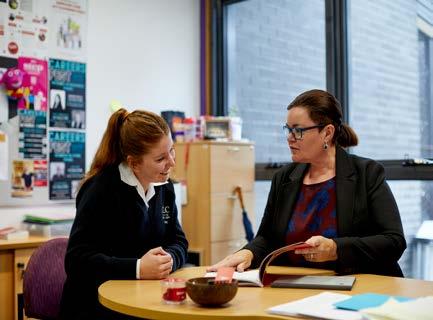
• The Good Careers Guide – www.goodcareersguide.com.au
• www.gooduniversitiesguide.com.au
This site allows exploration of courses, plus it links to the Good Careers Guide as well.
• www.myfuture.edu.au
This site provides the information about jobs. Go to ‘The Facts’. It also has links to job prospects and shows the expected demand in different industries. Students do need to set up and account (free) for this site.
• CLC Careers’ Website https://studyworkgrow.com.au/school/catholic-ladies-college/
• www.vtac.edu.au – course search for post Year 12.
• www.youthcentral.vic.gov.au
A good website to explore many aspects of working/ careers including a link to check award wages.
• University and TAFE Course Guides.
Most Universities and TAFEs have Open Days each year. This is generally a wonderful chance to visit the Campus, inspect facilities, discuss course and career outcomes with lecturers, course selection officers, current students, graduates and others.
• Open Days 2023 https://drive.google.com/file/d/1HCYdu9WEPqvgkCi_7sYwdhpJJ_ t3-HTI/view?usp=sharing
COURSE GUIDE 2024 YEAR 1 0 OVERVIEW > SELECTION TIMELINE
HOME
CURRICULUM & PATHWAY PLANNING
SUBJECT SELECTION PROCESS
YEAR 10 LEARNING PROGRAM
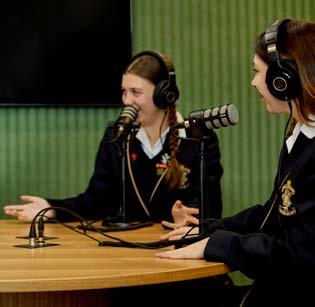


YEAR 10 SUBJECT OFFERINGS
CAREERS & TERTIARY COURSES
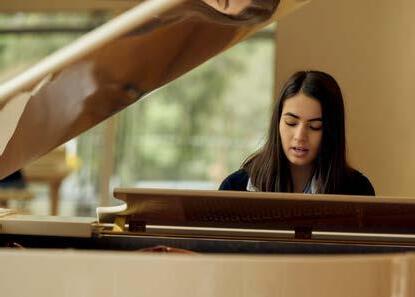
YEAR 10 COURSE DESCRIPTIONS
YEAR 10 ACCELERATED PROGRAM
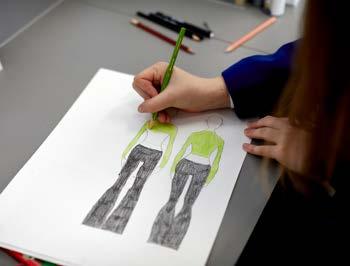
CLC CONTACTS
Year 10 Mathematics Pathways
Core Science
Year 10 Electives
CRITERIAYEAR 10
MATHEMATICS
YEAR 9 2023
Year 9
Numeracy
Year 9
Mainstream Mathematics
Year 9
Advanced Mathematics
At Years 9 and 10 students may be permitted to move up to the next level of Mathematics at the end of Semester One.
YEAR 10 2024
Year 10 Mathematics (Foundation)

Year 10 Mathematics (General)
Year 10 Mathematics (Methods)
This is reliant on sustained high grades, completion of extension tasks, consistent effort and teacher recommendation.
HOME CURRICULUM & PATHWAY PLANNING
SUBJECT SELECTION PROCESS
YEAR 10 LEARNING PROGRAM
YEAR 10 SUBJECT OFFERINGS
CAREERS & TERTIARY COURSES
YEAR 10 COURSE DESCRIPTIONS
YEAR 10 ACCELERATED PROGRAM
CLC CONTACTS
YEAR 11 2025
Foundation Mathematics Units 1 & 2
General Mathematics Units 1 & 2
Mathematical Methods Units 1 & 2
Specialist Mathematics Units 1 & 2 AND Mathematical Methods Units 1 & 2
YEAR 12 2026
Foundation Mathematics Units 3 & 4
General Mathematics Units 3 & 4
Mathematical Methods Units 3 & 4
General Mathematics Units 3 & 4 AND Mathematical Methods Units 3 & 4
Specialist Mathematics Units 3 & 4 AND Mathematical Methods Units 3 & 4
COURSE GUIDE 2024
YEAR 1 0 OVERVIEW > SELECTION TIMELINE
CURRICULUM & PATHWAY PLANNING
SUBJECT SELECTION PROCESS
YEAR 10 LEARNING PROGRAM
YEAR 10 SUBJECT OFFERINGS
CAREERS & TERTIARY COURSES

Compulsory
(note - students undertaking a Language and acceleration in Science, Health or PE subjects will not be required to complete Core Science. However, students will be advised to complete Core Science if pursuing Chemistry and Physics as part of their VCE program).
The core Science curriculum provides opportunities for you to further develop your understandings of important scientific concepts and processes. It aims to expand your curiosity and willingness to explore, ask questions and speculate on the world in which you live. It will provide you with an ability to solve problems and make informed, evidence-based decisions about current and future applications of science while taking into account ethical and social implications of decisions.
AIMS
The Core Science curriculum aims to ensure that students develop:
• an understanding of the nature of living things, of the Earth and its place in the cosmos, and of the physical and chemical processes that explain the behaviour of all material things
• an ability to solve problems and make informed, evidence-based decisions about current and future applications of Science
• a solid foundation of knowledge of the biological, chemical, physical sciences, including being able to select and integrate the scientific knowledge and methods needed to explain and predict phenomena, to apply that understanding to new situations and events, and to appreciate the dynamic nature of science knowledge.

The core units you will explore are:
• Biology: Genetics and Evolution
• Chemistry: Chemical Patterns and Chemical Reactions
• Physics: Forces and Motion
The Core Science content and a combination of elective choices will prepare you for the VCE Sciences offered: Psychology, Biology, Chemistry and Physics. There are numerous career pathways that require Science as part of entry requirements.
YEAR 10 COURSE DESCRIPTIONS
YEAR 10 ACCELERATED PROGRAM
CLC CONTACTS
HOME
CURRICULUM & PATHWAY PLANNING
SUBJECT SELECTION PROCESS
ENGLISH
Literature: Adapting & Transforming Texts
German
Indonesian
Italian
HUMANITIES
ONE SUBJECT CHOICE COMPULSORY
(unless studying a Language and accelerating in a VCE Humanities subject)
Commerce History
Governing The Modern World People & Places
YEAR 10 LEARNING PROGRAM
YEAR 10 SUBJECT OFFERINGS
CAREERS & TERTIARY COURSES
YEAR 10 COURSE DESCRIPTIONS
YEAR 10 ACCELERATED PROGRAM
CLC CONTACTS
LANGUAGES
SCIENCE
Biotechnology
Forensic Science & The Criminal Mind
STEAM
Designers of the Future
PERFORMING ARTS
Drama Music
VISUAL ARTS AND TECHNOLOGY
Art & Visual Design
Media
Fabrics, Fashion & Design
Food For Thought
COURSE GUIDE 2024
YEAR 1 0
OVERVIEW > SELECTION
TIMELINE

CURRICULUM & PATHWAY PLANNING
SUBJECT SELECTION PROCESS
YEAR 10 LEARNING PROGRAM
YEAR 10 SUBJECT OFFERINGS
CAREERS & TERTIARY COURSES
This course is aimed at students who have an interest and enjoyment in both studying and creating literature. Students will analyse a variety of texts examining the ways they convey entrenched views and values. Students will develop the capacity to present a creative response to The Great Gatsby, exploring how they can manipulate an original text in order to reflect modern values. Students will then enhance these skills through an analytical study of the classic play A Streetcar Named Desire and its film adaptation. The focus of this study is to explore the creators’ intention and how form is used to convey meaning.
AIMS
This study is designed to enable students to:
• Develop an enjoyment of literature- both written and visual
• Develop the capacity to use linguistic structure and features of language effectively
• Develop an interest in comparing and contrasting text types and evaluate a range of representations of individuals and groups in different historical, social and cultural contexts
• Understand that people’s evaluations of texts are influenced by their value systems, the context and the purpose and mode of communication
• Read and reflect upon examples of clever, engaging and powerful writing and in so doing, improve their own capacity to use language.
YEAR 10 COURSE DESCRIPTIONS
YEAR 10 ACCELERATED PROGRAM
CLC CONTACTS
A selection of topics from:


• The ways in which literature recreates and explores human experience
• Exploration of central themes and ideas expressed in chosen texts
• The ways in which the texts interpret personal, social, ethical and cultural contexts
• The ways in which texts can be adapted for a different medium
• The way the construction of a text can reveal a writer’s views, values and beliefs.
CURRICULUM & PATHWAY PLANNING
SUBJECT SELECTION PROCESS
DESCRIPTION
Commerce is an introductory course which enables students to understand the decisions made by business owners when establishing and operating their business. Students will also learn fundamental skills in managing their own money, including developing an understanding of tax and superannuation. Students will apply business reasoning and interpretation to solve problems and make personal decisions. Additionally, students will learn basic skills in recording and reporting financial information and data. Students will then be better placed to secure their own financial wellbeing and to face the future with optimism and confidence.
• Critical and creative thinking
• Consumer and financial literacy
• Enterprising behaviours and capabilities

• Decision making
• Resilience
• Collaboration.
YEAR 10 LEARNING PROGRAM
YEAR 10 SUBJECT OFFERINGS
CAREERS & TERTIARY COURSES
YEAR 10 COURSE DESCRIPTIONS
YEAR 10 ACCELERATED PROGRAM
CLC CONTACTS
This study is designed to enable students to:
• Creative and innovative thinking skills and approaches
• Evaluative and analytical skills
• Team work skills
• Computing skills.
TOPICS COVERED
• The Business Environment
• Consumer and Financial Literacy
• Accounting.
This subject is good preparation for students interested in undertaking VCE Business Management and VCE Accounting.

CURRICULUM & PATHWAY PLANNING
SUBJECT SELECTION PROCESS
In this subject students will study the history of the modern world and Australia from 1918 to the present and will focus on Australia in its global context. The twentieth century became a critical period in Australia’s social, cultural, economic and political development. The transformation of the modern world during a time of political turmoil, global conflict and international cooperation provides a necessary context for understanding Australia’s development, its place within the Asia-Pacific region and its global standing.
• Evaluate the historical significance of an event, idea, individual or place
• Identify and evaluate patterns of continuity and change in the development of the modern world and Australia
• Evaluate different historical interpretations and contested debates
• Analyse and evaluate the different perspectives of people in the past;
• Analyse and corroborate sources and evaluate their accuracy, usefulness and reliability.
YEAR 10 LEARNING PROGRAM
YEAR 10 SUBJECT OFFERINGS
CAREERS & TERTIARY COURSES

YEAR 10 COURSE DESCRIPTIONS
YEAR 10 ACCELERATED PROGRAM
CLC CONTACTS

ONE UNIT
In this study, we aim to answer the following key questions
• How did the nature of global conflict change during the 20th Century?
• What were the causes and consequences of World War II?
• How did these consequences shape the modern world?
• How was Australian society affected by other significant global events and changes in this period?
• World War II
• Aboriginal Rights and Freedoms
• The globalising world.
• Visit to the Shrine of Remembrance.
CURRICULUM & PATHWAY PLANNING
SUBJECT SELECTION PROCESS
YEAR 10 LEARNING PROGRAM
YEAR 10 SUBJECT OFFERINGS
CAREERS & TERTIARY COURSES

DESCRIPTION
This subject is designed to extend the students’ knowledge of the Australian Legal and Political systems. It contains a distinct Legal Studies unit, which investigates the Australian Legal system and includes an excursion to the Magistrate’s Court. Politics is focused on through the study of two different political systems and the challenges and opportunities these create for their citizens. There is an examination of conflicts in the world today. This subject is designed to challenge and extend students’ knowledge of their world.
• Creative and innovative thinking skills and approaches
• Evaluative and analytical skills
• Team work skills
• Computing skills
• Analysis
• Problem solving.
This study is designed to enable students to:
• Explore the concepts of citizenship and justice
• Further explore the concepts introduced in the Year 9 Humanities Civics Course
• Develop a sense of wonder, curiosity and respect for places, people, cultures and environments throughout the world
• Develop the capacity to be informed, responsible and active citizens who can contribute to the development of a world that is environmentally and economically sustainable and socially just.
• Legal systems
• Political systems
• International laws and rights.
• Visit to courts and Parliament House.
This subject will be a good preparation for students interested in undertaking VCE Legal Studies, History and Australian and Global Politics.
YEAR 10 COURSE DESCRIPTIONS
YEAR 10 ACCELERATED PROGRAM
CLC CONTACTS

CURRICULUM & PATHWAY PLANNING
SUBJECT SELECTION PROCESS
In topic one, students examine how people have altered the natural environment of our planet and the impacts of this change on people and places. They examine changes to the land atmosphere and water. They consider the impacts of climate change, pollution and loss of biodiversity. They investigate coastal environments in more detail and investigate how human activities such as tourism and climate change are impacting these regions.
In topic two, student study the levels of wealth, health, poverty and education across the globe. They study differences in wellbeing both within countries, and across the globe, investigating the reasons for these inequalities. They learn how to interpret data and justify differences in wellbeing. The investigate the different factors that can influence the overall wellbeing of a person and develop analytical skills.
• Predict changes in the characteristics of places over time and identify the possible implications of change for the future
• Issues affecting the development of places and their impact on human wellbeing, drawing on a study from a developing country or region in Africa, South America or the Pacific Islands
YEAR 10 LEARNING PROGRAM
YEAR 10 SUBJECT OFFERINGS
CAREERS & TERTIARY COURSES

YEAR 10 COURSE DESCRIPTIONS
YEAR 10 ACCELERATED PROGRAM
CLC CONTACTS
• Analyse and evaluate data, maps and other geographical information using digital and spatial technologies and Geographical Information Systems as appropriate, to develop identifications, descriptions, explanations and conclusions that use geographical terminology.
This subject aims to ensure that students develop:
• A sense of wonder, curiosity and respect for places, people, cultures and environments throughout the world
• A deep geographical knowledge of their own locality, Australia, the Asia region and the world
Assessment could include options such as:
• Fieldwork Report
• Short answer test
• Analysis of data

• Research Report
• Semester Exam.
A study of a natural environment such as a coastal region, with a focus on how people are managing that environment and how the environment is changing. Areas around Mornington Peninsula, McCrae, Sommers, Jack’s Beach and Cape Schanck are visited.
This subject will be a good preparation for students interested in undertaking Geography.
CURRICULUM & PATHWAY PLANNING
SUBJECT SELECTION PROCESS
YEAR 10 LEARNING PROGRAM
YEAR 10 SUBJECT OFFERINGS
CAREERS & TERTIARY COURSES
This unit offers students the opportunity to extend and consolidate the knowledge and skills acquired in Year 9 German. Units are thematically based and enable students to develop their comprehension and communication skills in German, while building intercultural skills and understanding. Students will be exposed to new language, grammatical concepts, linguistic elements and cultural perspectives through a variety of contexts with the aim of being able to comprehend, write and speak about a variety of familiar topics.
Students selecting Year 10 German should have completed three years’ study of that language and gained a good pass at Year 9 level. Year 10 German must be completed in order to be able to study German Units 1 and 2 in Year 11. Students need to be aware that studying Languages in Year 10 is a commitment for a whole year.
AIMS
• Develop a conscious awareness of the structure of language and how language is learned
• Gain insight into the culture of German speaking communities and develop intercultural awareness
• Use language to interact orally with others in a range of situations
• Write for a range of purposes using various forms of language – personal, imaginative and informative


• Read, listen and respond to a variety of texts
• To master a range of grammatical structures and concepts.
YEAR 10 COURSE DESCRIPTIONS
YEAR 10 ACCELERATED PROGRAM
CLC CONTACTS
TWO UNITS
Topics covered across two semesters in Year 10 include:
• Life in the city and country
• Daily life and routine
• In a share house – chores, parties and getting to know others, life at University
• Part-time jobs and interviews
• “Fit in Deutsch” international exams
• Lese Novela
• Fairytales.
A language other than English is a useful additional skill for many subject areas, including Science, Music, Engineering, Law, English, Health and Social Care, and Politics.
CURRICULUM & PATHWAY PLANNING
SUBJECT SELECTION PROCESS
DESCRIPTION
Units are thematically based and enable students to develop their comprehension and communication skills in Indonesian, while gaining an appreciation of the multi-lingual/multi-cultural world.
Students selecting Year 10 Indonesian should have completed three years’ study of that language and gained a good pass at Year 9 level. Year 10 Indonesian must be completed in order to be able to study Indonesian Units 1 and 2 in Year 11. Students need to be aware that studying Languages in Year 10 is a commitment for a whole year.
AIMS
• Develop a conscious awareness of the structure of language and how language is learned
• Gain insight into the culture of the language being learned and an appreciation of our multicultural society
• Use language to interact with others in a range of both formal and informal situations
• Write for a range of purposes using various forms of language –personal, imaginative and informative


• Read and understand a wide variety of texts.
YEAR 10 LEARNING PROGRAM
YEAR 10 SUBJECT OFFERINGS
CAREERS & TERTIARY COURSES
YEAR 10 COURSE DESCRIPTIONS
YEAR 10 ACCELERATED PROGRAM
CLC CONTACTS
The year’s work is organised into two topics:
• Housing
• The role of street traders
• Indonesian cuisine and ordering food at a restaurant
• Health and sickness.
A language other than English is a useful additional skill for many subject areas, including Science, Music, Engineering, Law, English, Health and Social Care, and Politics.
CURRICULUM & PATHWAY PLANNING
SUBJECT SELECTION PROCESS
DESCRIPTION
This unit offers students the opportunity to extend and consolidate the knowledge and skills acquired in Year 9. Students will be exposed to new language, grammatical concepts, linguistic elements and cultural perspectives through a variety of contexts with the aim of being able to comprehend, write and speak about a variety of familiar topics.
Students selecting Year 10 Italian should have completed three years’ study of that language and gained a good pass at Year 9 level. Year 10 Italian must be completed in order to be able to study Italian Units 1 and 2 in Year 11. Students need to be aware that studying Languages in Year 10 is a commitment for a whole year.
AIMS
• Develop a conscious awareness of the structure of language and how language is learned
• Gain insight into the culture of the language being learned and an appreciation of our multicultural society
• Use language to interact with others in a range of both formal and informal situations
YEAR 10 LEARNING PROGRAM
YEAR 10 SUBJECT OFFERINGS
CAREERS & TERTIARY COURSES
YEAR 10 COURSE DESCRIPTIONS
YEAR 10 ACCELERATED PROGRAM
CLC CONTACTS
TWO UNITS
• Write for a range of purposes using various forms of language –personal, imaginative and informative


• Read and understand a wide variety of texts.
• Travel and holiday experiences
• Italian migration to Australia
• Technology
• School life in Italy and Australia
• Family relationships
• Future aspirations.
A language other than English is a useful additional skill for many subject areas, including Science, Music, Engineering, Law, English, Health and Social Care, and Politics.
Drama and Dance helps to build confidence, learn skills that are important for all aspects of school and life, while having fun and making friends.
You should do drama because it helps build confidence and social skills. Plus it's lots of fun!
Students will explore Drama as an art form through improvisation, scripted drama, rehearsal and performance. They will refine their understanding of ritual and symbol. They will develop dramatic works which explore a range of themes, issues and ideas. They will apply dramatic elements, styles and conventions to convey meaning. Students will also have the opportunity to explore production areas of performance including lighting, sound, props, make-up and costumes. Students analyse and evaluate a professional drama performance.
• To develop performance expressive skills and cultural awareness to communicate ideas in dramatic action
• To be able to manipulate dramatic elements and theatrical conventions as applied to specific styles
• Perform devised and scripted drama making deliberate artistic choices and shaping design elements to unify dramatic meaning of an audience
CURRICULUM & PATHWAY PLANNING
SUBJECT SELECTION PROCESS
YEAR 10 LEARNING PROGRAM
YEAR 10 SUBJECT OFFERINGS
CAREERS & TERTIARY COURSES

YEAR 10 COURSE DESCRIPTIONS
YEAR 10 ACCELERATED PROGRAM
CLC CONTACTS

• Evaluate how the elements of drama and performance styles convey meaning and aesthetic effect.
• Symbol and Language
• Elizabethan Theatre
• Commedia Del ‘Arte’
• Ensemble Performance
• Performance Analysis.
ONE UNIT
CURRICULUM & PATHWAY PLANNING
SUBJECT SELECTION PROCESS
YEAR 10 LEARNING PROGRAM
YEAR 10 SUBJECT OFFERINGS
CAREERS & TERTIARY COURSES
DESCRIPTION
The Year 10 Music course aims to assist students to develop holistically into well-rounded musicians and contributes to their understanding of the various facets of the music industry.
Year 10 Music addresses three key areas of study: Performance, Music Industry and Music Language.
Students will develop technical skills on their chosen instrument as well as approaches to stage craft and personal musical interpretation with the aim of performing live in front of an audience. This unit offers students the opportunity to explore their own musical tastes as well as introducing them to new repertoire.
The Music Industry unit encourages students to explore careers in the music industry as well as practical application of industry skills including PA set up and marketing of events.
The Music Language unit aims to develop musical theory and analytical skills to prepare students for the application of these skills in both VCE and VET music in years 11 and 12.
• To develop technical proficiency on their chosen instrument appropriate repertoire choice
• To develop stage craft and performance
• To develop music language which includes music theory and analysis
YEAR 10 COURSE DESCRIPTIONS
YEAR 10 ACCELERATED PROGRAM
CLC CONTACTS

• To develop technical requirements for performance and exploration of genre

• To investigate and research an in-depth area of interest in the music industry.
• Performance
• Music Industry
• Music Language (Theory).
This subject prepares students who are considering undertaking VCE and or VET Music in Year 11 and 12. It is highly recommended that any student electing to study Music is undertaking individual tuition on their chosen instrument.
CURRICULUM & PATHWAY PLANNING
SUBJECT SELECTION PROCESS
DESCRIPTION
Biotechnology draws on knowledge from Biology, Chemistry, Physics and Engineering. This subject is designed to give capable students an extension beyond the curriculum to engage in opportunities to investigate a range of Biochemical experimental techniques and current areas of 21st Century Science. You will refine your scientific experimental skills, hypothesise, analyse results and most importantly open your mind to thinking in a creative manner about Science and how it is relevant in your life. You will explore different areas of Science both within and beyond the classroom. This elective is designed to stimulate your interest in the extensive opportunities and pathways open to you as a young Scientist.
AIMS
• To refine and extend scientific practical skills in the laboratory
• To investigate and report on a topic of interest
• To design and conduct an experiment
• To further develop inquiry based research skills and problem solving skills
• To enhance creative and analytical thinking.
YEAR 10 LEARNING PROGRAM
YEAR 10 SUBJECT OFFERINGS
CAREERS & TERTIARY COURSES
YEAR 10 COURSE DESCRIPTIONS
YEAR 10 ACCELERATED PROGRAM
CLC CONTACTS
A selection of topics including:
• Anatomy and Physiology of Body Systems
• Effects of space travel on the human body
• DNA manipulation
• Experimental techniques exploring Science and Ethics


• Biotechnology.
This subject will be a good preparation for students studying Biology, Physics or Chemistry at the VCE level. In addition, it will provide students with an appreciation of some of the opportunities available in Science at the tertiary level.
CURRICULUM & PATHWAY PLANNING
SUBJECT SELECTION PROCESS
DESCRIPTION
This subject introduces students to the scientific nature of forensic science and psychology. Throughout the semester scientific research and inquiry skills will be taught and refined. Students will investigate the role of Forensic Scientists and Psychologists in settings such as crime scenes, courts and prisons. Students will learn how to collect evidence, including blood, fingerprints, fibres, footprints, handwriting analysis, DNA, gunshot and bullet residue at the crime scene and analyse this evidence. Students will investigate the psychology behind criminal behaviour through lie detection, body language analysis, criminal profiling and psychopathology. Students will also discover the inaccuracies of human memory and the impact this has on eye witness testimonies in the court room. Assessment will include a practical investigation on blood spatter, research investigation on memory, tests and an exam.
AIMS
• To introduce key concepts of Forensic Science and Psychology, using case studies, practical investigations and an individual research investigation
• To strengthen scientific and inquiry skills including the use of microscopes, chemicals, simulations and problem solving
YEAR 10 LEARNING PROGRAM
YEAR 10 SUBJECT OFFERINGS
CAREERS & TERTIARY COURSES
YEAR 10 COURSE DESCRIPTIONS
YEAR 10 ACCELERATED PROGRAM
CLC CONTACTS
• To research, design, conduct, analyse and report on research related to forensics.

• Introduction to Forensic Science and Psychology
• Various types of Forensic Scientists and what they do: the role of the Forensic Psychologist in crime
• Collection of evidence: Blood types, fingerprints, fibres, footprints, handwriting analysis, DNA, gunshot and bullet residue
• Microscope skills: investigating evidence under the microscope
• Catching the criminal: identikits, police line-ups, criminal profiling
• Types of criminals: Antisocial Personality Disorder and mental disorders associated with crime, stalkers, serial killers
• How to catch a liar: the art of lying, body language and the scientific nature of the lie detector
• Psychologists as expert witnesses and the insanity plea in court
• The role of memory in Eye Witness Testimony
• Hypnosis and mind control
• Research Methods and conducting an independent research investigation.

The student will have been introduced to some psychological concepts and terminology. They may have some understanding about the role of Psychology in the world and will have an idea about whether they are interested in undertaking VCE Psychology. The student may have strengthened their ability to communicate using scientific terminology and to prepare practical reports following correct reporting procedures. This will be of benefit when completing any VCE Science. The student will have strengthened their critical analysis and evaluative skills, benefitting most VCE subjects.
DESCRIPTION
This unit is project-based and enables students to make real world connections and explore within the five disciplines of STEAM: Science, Technology, Engineering, Arts and Mathematics. Students work to empathise with current global needs through the design thinking process and work collaboratively to propose solutions. Through this unit students will develop specific technological skills based around an area of interest and have the opportunity to build links with the wider STEAM community.
• What are the current global issues?
• What skills do we need to be able to solve these issues for the future?
• How can we collaboratively design and innovate the change we need?
CURRICULUM & PATHWAY PLANNING
SUBJECT SELECTION PROCESS
YEAR 10 LEARNING PROGRAM
YEAR 10 SUBJECT OFFERINGS
CAREERS & TERTIARY COURSES
YEAR 10 COURSE DESCRIPTIONS
YEAR 10 ACCELERATED PROGRAM
CLC CONTACTS
ONE
• To develop an awareness of the global community and build student capacity in empathy
• To practice skills of critical and creative thinking
• To work collaboratively and take on diverse roles within the design thinking process
• To increase exposure and develop proficiency in 21st Century technological skills
• To communicate innovative ideas in both a written and verbal context
• To explore STEAM pathways beyond CLC.
• Sustainability
• Energy and Transport
• Agriculture and Food Production
• Artificial Intelligence
• Architecture and Engineering
• GMO’s
• Health Care
• Space Travel.
This subject prepares students who are considering undertaking VCE Sciences, Maths and Design and Technology subjects. It is recommended for students that are interested in a pathway involving design thinking, innovation and problem-based learning.


CURRICULUM & PATHWAY PLANNING
SUBJECT SELECTION PROCESS
YEAR 10 LEARNING PROGRAM
YEAR 10 SUBJECT OFFERINGS
CAREERS & TERTIARY COURSES
DESCRIPTION
This subject aims to develop students’ skills in a range of media with the focus on developing individual concepts and ideas about the world. Students learn about the place that Art has in contemporary Australia through a study and exploration of elements, themes and images. Students generate creative and innovative design solutions in response to a brief and explore design techniques, which cover a multitude of disciplines. Through the combination of Art and Visual Communication Design, students will be prepared to continue their pathway in Studio Art or Visual Communication Design in VCE.
AIMS
This study is designed to enable students to:
• Explore and generate art ideas from a wide variety of starting points
• Develop ideas and images through consistent refinement
• Develop skills in drawing, painting and other techniques, forms and processes
• To develop spatial thinking skills and the ability to produce realistic three dimensional drawings and designs
• To encourage creative problem solving skills and an understanding of ‘The Design Process’
• To understand design terminology and utilise the elements and principles of design in the creation of new designs.
• Art beginnings and the role of drawing for development of ideas
• Creating and making of finished artworks
• Technical drawing systems
• Rendering techniques
• Exploring ideas using design elements and principles
• Computer generated design solutions


• Artworks and their meanings.
YEAR 10 COURSE DESCRIPTIONS
YEAR 10 ACCELERATED PROGRAM
CLC CONTACTS
CURRICULUM & PATHWAY PLANNING
SUBJECT SELECTION PROCESS
YEAR 10 LEARNING PROGRAM
YEAR 10 SUBJECT OFFERINGS
CAREERS & TERTIARY COURSES
DESCRIPTION
This subject explores the prevailing landscape of media and develops skills needed to contribute to it in creative and technically accomplished ways. It is equal part practical and theoretical and allows for the development of two major projects throughout the semester. The theory is film study. We watch a number of films and develop technical writing skills to investigate them. The idea behind the projects is to identify a media industry interest of each student so that the project feels targeted, contemporary and a genuine expression of creativity. Projects can focus on one medium or incorporate multiple.
Choices of medium include, but are not limited to:
• Film Production (Filmmaking, Advertising, TV Production, Music Videos)
• Photography (Portraiture, Landscape, Fashion, Sport, Photojournalism, Advertising)
• Mobile Applications (Apps, Games, User Interface Design, VR)

• Social Media/Web Content Development (Streaming, Blogging, CMS)

• Publishing (Journalism, Book Publishing, Blogging, eBooks, Augmented Reality)
• Radio/Podcasting.
• Investigation and analysis of film/screen, its production and audience
• To establish a design and production workflow that produces material results
• To strengthen technical competency between hardware a nd software
• To build an awareness of how media products communicate meaning to their audiences and how students utilise the same techniques
• To develop visual literacy so that the media/advertising/ journalism/social media can be consumed with insight and discernment.
• Media Disruption and Influence
• Devices and Social Networks
• Advertising
• Preproduction and folio planning
• Producing a short film, photoseries or zine
• Codes and conventions of media.
YEAR 10 COURSE DESCRIPTIONS
YEAR 10 ACCELERATED PROGRAM
CLC CONTACTS
DESCRIPTION
This unit aims to introduce students to the skills and processes of design and construction in the area of clothing, fashion and textiles. Students will focus on working through a design process to develop a design folio that will allow students to explore the techniques used by designers to create and produce fashion and textile items. Students will use patterns to adapt a basic shape to meet particular design needs. They will undertake a study of fabrics and their suitability for garment construction.
AIMS
• To introduce students to the fashion industry and current trends;
• To introduce students to a range of fabrics and appropriate sewing skills;
• To introduce students to commercial patterns and garment construction techniques.

• Investigation and analysis of fashion trends;
• Use of a sewing machine;
• Development of design options;

• Construction of a woven garment;
• Construction of a non-woven garment;
• Production of a Fashion Folio.
This subject will prepare students for the subject VCE VET Certificate II Fashion and Design Technology. It will focus on research, design, production and evaluation skills in the area of clothing, fashion and textiles.
CURRICULUM & PATHWAY PLANNING
SUBJECT SELECTION PROCESS
YEAR 10 LEARNING PROGRAM
YEAR 10 SUBJECT OFFERINGS
CAREERS & TERTIARY COURSES
YEAR 10 COURSE DESCRIPTIONS
YEAR 10 ACCELERATED PROGRAM
CLC CONTACTS
CURRICULUM & PATHWAY PLANNING
SUBJECT SELECTION PROCESS
DESCRIPTION
This unit focuses broadly on the Australian Dietary Guidelines and covers a range of nutritional concepts relating to adolescent health and wellbeing, with emphasis on fun and enjoyable hands on learning. There is a strong practical element throughout, with practical classes designed to reinforce the theoretical content.
The teaching of practical skills builds on those taught in Year 8 and/or 9, the main emphasis being on confidence building, recipe development and food styling. Students are encouraged to adapt recipes to meet a variety of criteria.
AIMS
• To reinforce the principles of nutrition in relation to health and wellbeing.
• To increase skills in food preparation, safe work habits and hygiene.
• To develop the ability to apply nutritional knowledge to practical food preparation.
• To develop a sound knowledge of a variety of food preparation methods.
YEAR 10 LEARNING PROGRAM
YEAR 10 SUBJECT OFFERINGS
CAREERS & TERTIARY COURSES
YEAR 10 COURSE DESCRIPTIONS
YEAR 10 ACCELERATED PROGRAM
CLC CONTACTS
• To develop confidence in preparing a range of food items, including healthy meals, vegetarian cookery, healthy snacks and celebration food items including cakes and desserts.
A selection of topics from:


• Australian Dietary Guidelines and healthy food choice.
• Nutrition – including calcium, iron and other nutrients relevant to adolescence.
• Variety of food items – sweet and savoury
• Assessment Tasks - Chocolate Buttercream Mud Cake Design, iMovie Healthy Snack.
This subject will be a good preparation for students interested in Food Studies in VCE. It also gives skills in design, management and planning that will be useful in many areas of school and life.
HOME
CURRICULUM & PATHWAY PLANNING
SUBJECT SELECTION PROCESS
YEAR 10 LEARNING PROGRAM
YEAR 10 SUBJECT OFFERINGS
CAREERS & TERTIARY COURSES
YEAR 10 COURSE DESCRIPTIONS
YEAR 10 ACCELERATED PROGRAM
CLC CONTACTS
Application Criteria
VCE and VET Studies Offered
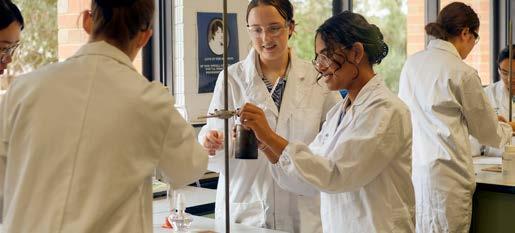
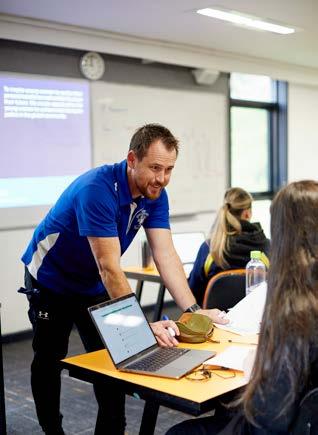
VCE and VET Course Descriptions
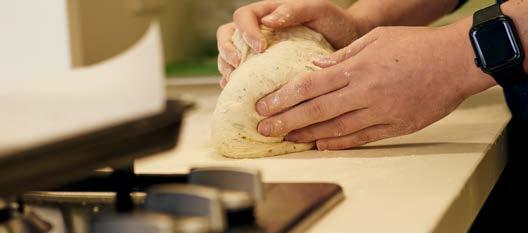
APPLICATION TO STUDY UNIT 1 & 2 IN YEAR 10
APPLICATION FOR EXTERNAL VCE STUDIES

YEAR 10 UNITS 1 & 2
When students choose their subjects at the end of their Year 9 academic year, some students will apply to study one VCE Unit 1 and 2 subject in Year 10. To be successful in their application Year 9 students are required to meet the following criteria:
APPLICATION CRITERIA
• An average of B+ in at least five subjects, one being English, including like subject/s in Year 9 Semester One
YEAR 11 UNITS 3 & 4
When students choose their VCE subjects at the end of their Year 10 academic year, some students will apply to study one VCE Unit 3 and 4 subject in Year 11. To be successful in their application Year 10 students are required to meet the following criteria:
APPLICATION CRITERIA
• Average of B+ in at least five subjects, one being English and like subject/s or Unit 1/2 of the same subject with at least a B grade for Unit 1 exam
HOME CURRICULUM & PATHWAY PLANNING
SUBJECT SELECTION PROCESS
YEAR 10 LEARNING PROGRAM
YEAR 10 SUBJECT OFFERINGS
CAREERS & TERTIARY COURSES
YEAR 10 COURSE DESCRIPTIONS
YEAR 10 ACCELERATED PROGRAM
CLC CONTACTS
• Regular attendance
• Support for the College behavioural expectations
• No ‘Ungraded’ or ‘Not Submitted’ grades for Assessment Tasks
• Excellent effort, organisation and commitment to studies in every subject
• PAT and NAPLAN diagnostic testing results will be taken into consideration.
• Regular attendance
• Support for the College behavioural expectations
• No ‘Ungraded’ or ‘Not Submitted’ grades for Assessment Tasks’
• PAT and NAPLAN diagnostic testing results will be taken into consideration
• Excellent effort, organisation and commitment to studies in all subjects.
VCE REQUIREMENTS
To meet the graduation requirements of the VCE, a student must complete a total of no fewer than 16 Units. These MUST include:
• Three units of English (Units 1 to 4) or English Literature (Units 1 to 4), two of which must be a Unit 3 & 4 sequence.
• Three sequences of Units 3 & 4 studies other than English
HOME CURRICULUM & PATHWAY PLANNING
SUBJECT SELECTION PROCESS
YEAR 10 LEARNING PROGRAM
YEAR 10 SUBJECT OFFERINGS
CAREERS & TERTIARY COURSES

YEAR 10 COURSE DESCRIPTIONS
YEAR 10 ACCELERATED PROGRAM CLC
HOME CURRICULUM & PATHWAY PLANNING
SUBJECT SELECTION PROCESS
YEAR 10 LEARNING PROGRAM
YEAR 10 SUBJECT OFFERINGS
CAREERS & TERTIARY COURSES
YEAR 10 COURSE DESCRIPTIONS
YEAR 10 ACCELERATED PROGRAM
CLC CONTACTS
Year 10 VCE accelerated subjects offered in 2024
VCE


DESCRIPTION
This unit focuses on the health and wellbeing of Australia’s youth and students consider their own health as individuals and as a cohort. Students explore health and wellbeing as a concept with varied and evolving perspectives and definitions. Multiple dimensions of health and wellbeing will be investigated, as well as the complex interplay of influences on health and wellbeing and the indicators used to measure and evaluate health status. Students will explore food and nutrition as foundations for good health and wellbeing. Students develop strategies for building their health literacy through interpreting and using data and evaluating health information from various sources.
OUTCOMES
• Describe and explain multiple dimensions of health and wellbeing, including indicators used to measure health status and analyse factors that contribute to variations in health status of youth.
• Describe and apply nutrition knowledge and tools to the selection of food and the evaluation of nutrition information.
DESCRIPTION
This unit focuses on the lifespan stages of prenatal childhood and adulthood as well as developmental transitions between lifespan stages.. Students will develop an understanding of the health and individual human development of Australia’s children and adults. A range of health issues that are having an impact on Australia’s healthcare system will be discussed.
• Describe and explain factors that affect the health and individual during the prenatal stage.
• Describe and explain how Australia’s health system promotes health and wellbeing.
• Describe and analyse a range of issues associated with the use of new and emerging health procedures and technologies.
HOME
CURRICULUM & PATHWAY PLANNING
SUBJECT SELECTION PROCESS
YEAR 10 LEARNING PROGRAM
YEAR 10 SUBJECT OFFERINGS
CAREERS & TERTIARY COURSES
YEAR 10 COURSE DESCRIPTIONS
YEAR 10 ACCELERATED PROGRAM
CLC CONTACTS
• Describe and interpret data to identify key areas for improving youth health and wellbeing.
A range of tasks taken from the following list:
• Case study analysis
• Data analysis
• Visual presentation, such as concept/mind map, poster or presentation file
• Multimedia presentation
• Oral presentation, such as a debate or podcasts (audio or visual)
• Blog
• Test
• Written response, such as a research assignment or briefing paper.
A range of tasks taken from the following list:
• Case study analysis
• Data analysis

• Visual presentation, such as concept/min map, poster or presentation file
• Multimedia presentation
• Oral presentation, such as a debate or podcasts (audio or visual)
• Blog
• Test
• Written response, such as a research assignment or briefing paper.
HOME
CURRICULUM & PATHWAY PLANNING
SUBJECT SELECTION PROCESS
YEAR 10 LEARNING PROGRAM
YEAR 10 SUBJECT OFFERINGS
CAREERS & TERTIARY COURSES


DESCRIPTION
In this unit students explore how the musculoskeletal and cardiorespiratory systems work together to produce movement. Through practical activities students explore the relationships between the body systems and physical activity, sport and exercise and how the systems adapt and adjust to the demands of the activity. Students investigate the role and function of the main structures in each system and how they respond to physical activity, sport and exercise. They explore how the capacity and functioning of each system acts as an enabler or barrier to movement and participation in physical activity.
Students evaluate the social, cultural and environmental influences on movement, whilst considering the implications of the use of legal and illegal practices to improve the performance of the musculoskeletal and cardiorespiratory systems, evaluating perceived benefits and describing potential harms. They also recommend and implement strategies to minimise the risk of illness or injury to each system.
A range of tasks taken from the following list:
• Written report
• Practical laboratory report linking key knowledge and key skills to practical activity
• Case study and/or analysis
• Critically reflective folio/diary of participation in practical activities
• Visual, multimedia and/or oral presentation
• Physical simulation or model
YEAR 10 COURSE DESCRIPTIONS
YEAR 10 ACCELERATED PROGRAM
CLC CONTACTS
• Structured questions
• Semester Examination.
DESCRIPTION
This unit develops students’ understanding of physical activity, sport and society from a participatory perspective. Students are introduced to types of physical activity and the role participation in physical activity and sedentary behaviour plays in their own health and wellbeing as well as in other people’s lives in different population groups.
Through a series of practical activities, students experience and explore different types of physical activity promoted in their own and different population groups. They gain an appreciation of the level of physical activity required for health benefits and investigate how participation in physical activity varies across the lifespan, whilst exploring a range of influential factors. They collect data to determine perceived enablers of and barriers to physical activity and the ways in which opportunities for participation in physical activity can be extended in various communities, social, cultural and environmental contexts. Students investigate individual and populationbased consequences of physical inactivity and sedentary behaviour, after which they create and participate in an activity plan that meets the guidelines relevant to the particular population group being studied.
Students apply various methods to assess individual and population physical activity and sedentary behaviour levels and analyse the data in relation to behaviour guidelines. Students study and apply the social ecological model and/or the Youth Physical Activity Promotion Model to critique a range of individual and settings based strategies that are effective in promoting participation in some form of regular physical activity.
A range of tasks taken from the following list:
• Written plan and reflective folio
• Visual, multimedia and/or oral presentation
• Written report
• Semester Examination.


The VCE VET Sport and Recreation program aims to provide students with skills and knowledge to achieve competencies that will enhance their employment prospects in the sport and recreation or related industries.
UNIT 1 & 2
DESCRIPTION
The VCE VET Sport and Recreation program aims to provide students with skills and knowledge to achieve competencies that will enhance their employment prospects in the sport and recreation or related industries. This will enable students to gain a recognised credential and to make a more informed choice of vocation or career path. Certificate III in Sport and Recreation provides students with the skills and knowledge to work in the Sport and Recreation industry.
The VCE VET Unit 1 and 2 sequence incorporates compulsory units such as developing critical and creative thinking skills, organising personal work priorities and development, providing first aid, using social media tools for collaboration and management, provide customer service, respond to emergency.
CURRICULUM & PATHWAY PLANNING
SUBJECT SELECTION PROCESS
YEAR 10 LEARNING PROGRAM
YEAR 10 SUBJECT OFFERINGS
CAREERS & TERTIARY COURSES
YEAR 10 COURSE DESCRIPTIONS
YEAR 10 ACCELERATED PROGRAM
CLC CONTACTS
• Eight employability skills - communication, initiative and enterprise, learning, planning and organisation, problem solving, self-management, teamwork, and technology – as well as the skills associated with the particular Sport and Recreation electives chosen by the school and the student.
A range of tasks taken from the following list:
• Observation
• Tests
• Practical demonstrations
• Group sessions and presentations.
CURRICULUM & PATHWAY PLANNING
SUBJECT SELECTION PROCESS
YEAR 10 LEARNING PROGRAM
YEAR 10 SUBJECT OFFERINGS
CAREERS & TERTIARY COURSES


DESCRIPTION
Businesses of all sizes are major contributors to the economic and social wellbeing of a nation. The ability of entrepreneurs to establish a business and the fostering of conditions under which new business ideas can emerge are vital for a nation’s wellbeing. Taking a business idea and planning how to make it a reality are the cornerstones of economic and social development. In this unit students explore the factors affecting business ideas and the internal and external environments within which businesses operate, as well as the effect of these on planning a business. They also consider the importance of the business sector to the national economy and social wellbeing.
ASSESSMENT
A range of tasks taken from the following list:
• Case study analysis
• Business research report
• Development of a business plan and/or feasibility study
• Interview and report on contact with business
• Business simulation exercise
• School-based short-term business activity
• Essay
• Business survey and analysis
• Media analysis
• Tests.
YEAR 10 COURSE DESCRIPTIONS
YEAR 10 ACCELERATED PROGRAM
CLC CONTACTS
DESCRIPTION
This unit focuses on the establishment phase of a business. Establishing a business involves compliance with legal requirements as well as decisions about how best to establish a system of financial record keeping, staff the business and establish a customer base. In this unit students examine the legal requirements that must be met to establish a business. They investigate the essential features of effective marketing and consider the best way to meet the needs of the business in terms of staffing and financial record keeping. Students analyse management practices by applying key knowledge to contemporary business case studies from the past four years.
ASSESSMENT
A selection from the following range of assessment tasks:
• Case study analysis
• Business research report
• Development of a marketing plan and/or feasibility study
• Interview and report on contact with business
• Business simulation exercise
• Essay
• Business survey and analysis
• Media analysis
• Tests.
CURRICULUM & PATHWAY PLANNING
SUBJECT SELECTION PROCESS


This unit investigates how people have responded to specific types of hazards and disasters. Students undertake an overview of hazards before investigating two contrasting types of hazards and the responses to them.
Students examine the processes involved with hazards and hazard events, considering their causes and impacts, human responses to hazard events and the interconnections between human activities and natural phenomena, including the impact of climate change. Students undertake fieldwork and produce a fieldwork report.
A range of tasks taken from the following list:
• structured questions
• a case study
• a research report
• analysis of geographic data
• a multimedia presentation.
In this unit students investigate the characteristics of tourism: where it has developed, its various forms, how it has changed and continues to change and its impact on people, places and environments, issues and challenges of ethical tourism. Students select contrasting examples of tourism from within Australia and elsewhere in the world to support their investigations.
They study tourism at local, regional and global scales emphasising the interconnection within and between places as well as the impacts, issues and challenges that arise from various forms of tourism. Students investigate how the growth of tourism at all scales requires appropriate management to ensure it is environmentally, socially, culturally and economically sustainable. Students undertake fieldwork and produce a fieldwork report.
A range of tasks taken from the following list:
• structured questions
• a case study
• a research report
• analysis of geographic data
• a multimedia presentation.
YEAR 10 LEARNING PROGRAM
YEAR 10 SUBJECT OFFERINGS
CAREERS & TERTIARY COURSES
YEAR 10 COURSE DESCRIPTIONS
YEAR 10 ACCELERATED PROGRAM
CLC CONTACTS
CURRICULUM & PATHWAY PLANNING
SUBJECT SELECTION PROCESS


DESCRIPTION
In this unit, students develop an understanding of legal foundations, such as the different types and sources of law, the characteristics of an effective law, and an overview of parliament and the courts. Students are introduced to and apply the principles of justice. They investigate key concepts of criminal law and apply these to actual and/or hypothetical scenarios to determine whether an accused may be found guilty of a crime.
In doing this, students develop an appreciation of the manner in which legal principles and information are used in making reasoned judgments and conclusions about the culpability of an accused. Students also develop an appreciation of how a criminal case is determined, and the types and purposes of sanctions. Students apply their understanding of how criminal cases are resolved and the effectiveness of sanctions through consideration of recent criminal cases from the past four years.
DESCRIPTION
In this unit, students investigate key concepts of civil law and apply these to actual and/or hypothetical scenarios to determine whether a party is liable in a civil dispute. Students explore different areas of civil law, and the methods and institutions that may be used to resolve a civil dispute and provide remedies. They apply knowledge through an investigation of civil cases from the past four years. Students also develop an understanding of how human rights are protected in Australia and possible reforms to the protection of rights, and investigate a contemporary human rights issue in Australia, with a specific focus on one case study.
UNITS 1 & 2 ASSESSMENT
• Case Studies
• Structured assignment
• Folio and Report
• Test
• Semester Examination.
YEAR 10 LEARNING PROGRAM
YEAR 10 SUBJECT OFFERINGS
CAREERS & TERTIARY COURSES
YEAR 10 COURSE DESCRIPTIONS
YEAR 10 ACCELERATED PROGRAM
CLC CONTACTS
HOME
CURRICULUM & PATHWAY PLANNING
SUBJECT SELECTION PROCESS
YEAR 10 LEARNING PROGRAM
YEAR 10 SUBJECT OFFERINGS
CAREERS & TERTIARY COURSES


DESCRIPTION
In this unit students examine the cell as the structural and functional unit of life, from the single celled to the multicellular organism, including the requirements for sustaining cellular processes. Students focus on cell growth, replacement and death and the role of stem cells in differentiation, specialisation and renewal of cells. They explore how systems function through cell specialisation in vascular plants and animals, and consider the role homeostatic mechanisms play in maintaining an animal’s internal environment.
Students should be able to:
• Investigate and explain how cellular structures and systems function to sustain life.
• Explain how various adaptations enhance the survival of an individual organism, investigate the relationships between organisms that form a living community and their habitat and analyse the impacts of factors that affect population growth.
• Design and undertake an investigation related to the survival of an organism or species and draw conclusions based on evidence from collected data.
• Fieldwork activity
• Practical work folio of activities or investigations
• Media response
• Data analysis and problem solving
• Reflective learning journal/blog
• Tests
• Student-designed or adapted investigation
• Semester Examination.
YEAR 10 COURSE DESCRIPTIONS
YEAR 10 ACCELERATED PROGRAM
CLC CONTACTS
In this unit students explore reproduction and the transmission of biological information from generation to generation and the impact this has on species diversity. They apply their understanding of chromosomes to explain the process of meiosis. Students consider how the relationship between genes, and the environment and epigenetic factors influence phenotypic expression. They explain the inheritance of characteristics, analyse patterns of inheritance, interpret pedigree charts and predict outcomes of genetic crosses. Students analyse the advantages and disadvantages of asexual and sexual reproductive strategies, including the use of reproductive cloning technologies. They study structural, physiological and behavioural adaptations that enhance an organism’s survival. Students explore interdependences between species, focusing on how keystone species and top predators structure and maintain the distribution, density and size of a population. They also consider the contributions of Aboriginal and Torres Strait Islander knowledge and perspectives in understanding the survival of organisms in Australian ecosystems.
Students should be able to:
• Compare the advantages and disadvantages of a sexual and sexual reproduction, explain how changes within the cell cycle may have an impact on cellular or tissue system function and identify the role of stem cells in cell growth and cell differentiation and in medical therapies.
• Apply an understanding of genetics to describe patterns of inheritance, analyse pedigree charts, predict outcomes of genetic crosses and identify the implications of the uses of genetic screening and decision making related to inheritance.
• Investigate and communicate a substantiated response to a question related to an issue in genetics and/or reproductive science.
• Fieldwork activity
• Practical work folio of activities or investigations
• Media response
• Data analysis and problem solving
• Reflective learning journal/blog
• Tests
• Report of an investigation into genetics and/or reproductive science
• Semester Examination.
CURRICULUM & PATHWAY PLANNING
SUBJECT SELECTION PROCESS


UNIT 1: HOW ARE BEHAVIOUR AND MENTAL PROCESSES SHAPED?
DESCRIPTION
Students examine the complex nature of psychological development, including situations where psychological development may not occur as expected. Students examine the contribution that classical and contemporary knowledge from Western and non-Western societies, including Aboriginal and Torres Strait Islander peoples, has made to an understanding of psychological development and to the development of psychological models and theories used to predict and explain the development of thoughts, emotions and behaviours.
They investigate the structure and functioning of the human brain and the role it plays in mental processes and behaviour and explore brain plasticity and the influence that brain damage may have on a person’s psychological functioning.
ASSESSMENT
• Tests
• Logbook of practical activities
• Student directed research investigation
YEAR 10 LEARNING PROGRAM
YEAR 10 SUBJECT OFFERINGS
CAREERS & TERTIARY COURSES
YEAR 10 COURSE DESCRIPTIONS
YEAR 10 ACCELERATED PROGRAM
CLC CONTACTS
• Semester Examination.
DESCRIPTION
Students evaluate the role social cognition plays in a person’s attitudes, perception of themselves and relationships with others. Students explore a variety of factors and contexts that can influence the behaviour of individuals and groups, recognising that different cultural groups have different experiences and values. Students are encouraged to consider Aboriginal and Torres Strait Islander people’s experiences within Australian society and how these experiences may affect psychological functioning.
Students examine the contribution that classical and contemporary research has made to the understandings of human perception and why individuals and groups behave in specific ways. Students investigate how perception of stimuli enables a person to interact with the world around them and how their perception of stimuli can be distorted.
ASSESSMENT
• Tests
• Logbook of practical activities
• Media response
• Student directed practical investigation
• Semester Examination.
HOME
CURRICULUM & PATHWAY PLANNING
SUBJECT SELECTION PROCESS

YEAR 10 LEARNING PROGRAM
YEAR 10 SUBJECT OFFERINGS
CAREERS & TERTIARY COURSES
YEAR 10 COURSE DESCRIPTIONS
YEAR 10 ACCELERATED PROGRAM
CLC CONTACTS
JOANNA DE BONO Deputy Principal Learning & Teaching
ENGLISH/ LITERATURE
LORRAINE CONNELL
CATHERINE JACKSON Director Curriculum & Assessment
HEALTH & PHYSICAL EDUCATION
NATALIE ALEXANDER
PERFORMING ARTS
MATT M C FARLANE
RELIGIOUS EDUCATION
CAREY WEBSTER
TARYN BATES Director Learning Innovation & Engagement
HUMANITIES
OLIVIA BOLAND LANGUAGES
SCIENCE
MARISA TSOUKATOS
ELLY KEATING VET & Career Pathways Leader
PAULINE KHOO
ANJA DRUMMOND VCE Leader
MATHEMATICS
MARTINA ABRAHAMS
VISUAL ARTS AND TECHNOLOGY
ANDREA DURHAM
COURSE GUIDE 2024
YEAR 1 0
OVERVIEW >
SELECTION
TIMELINE
